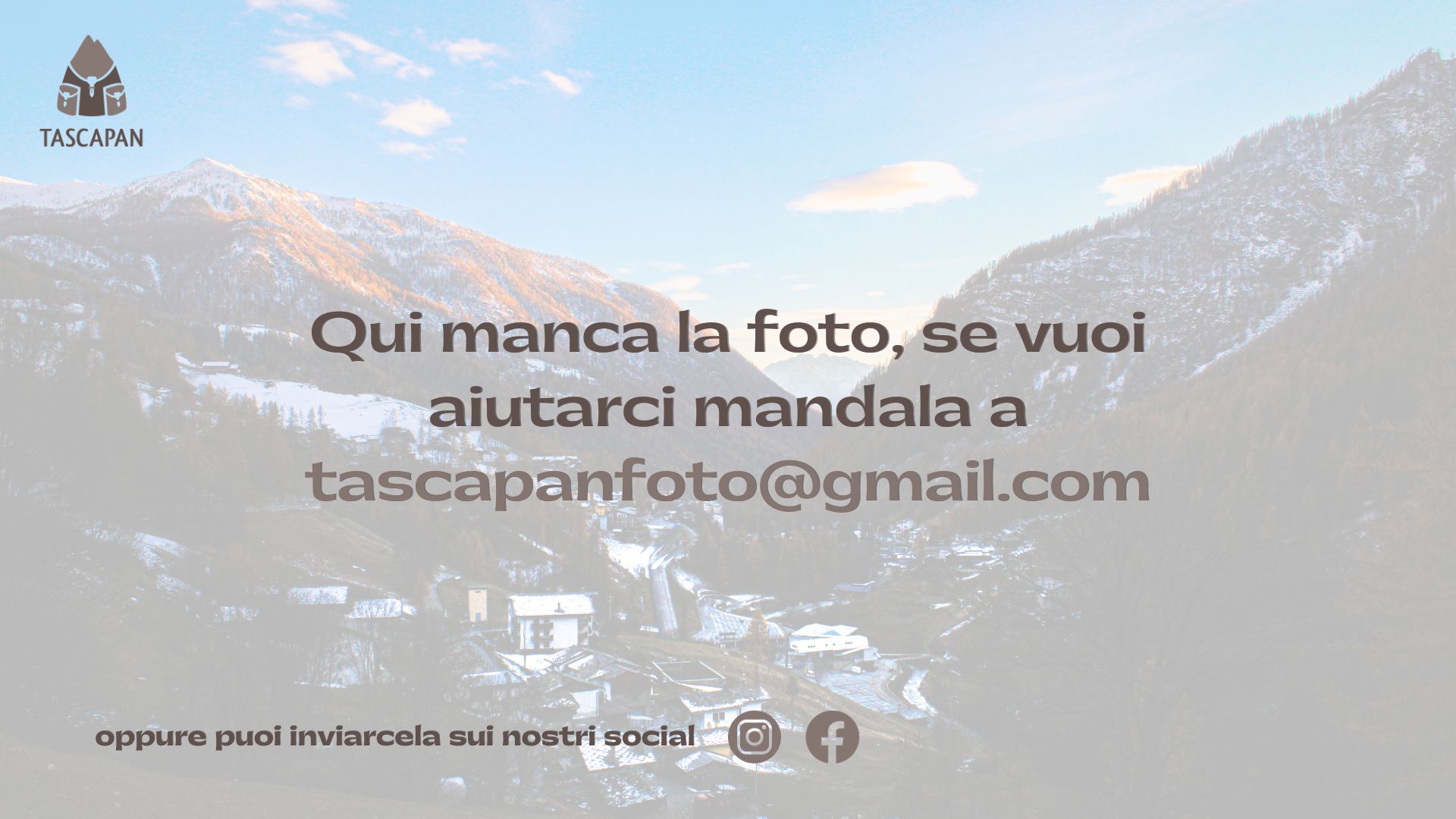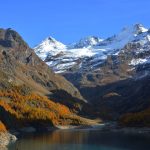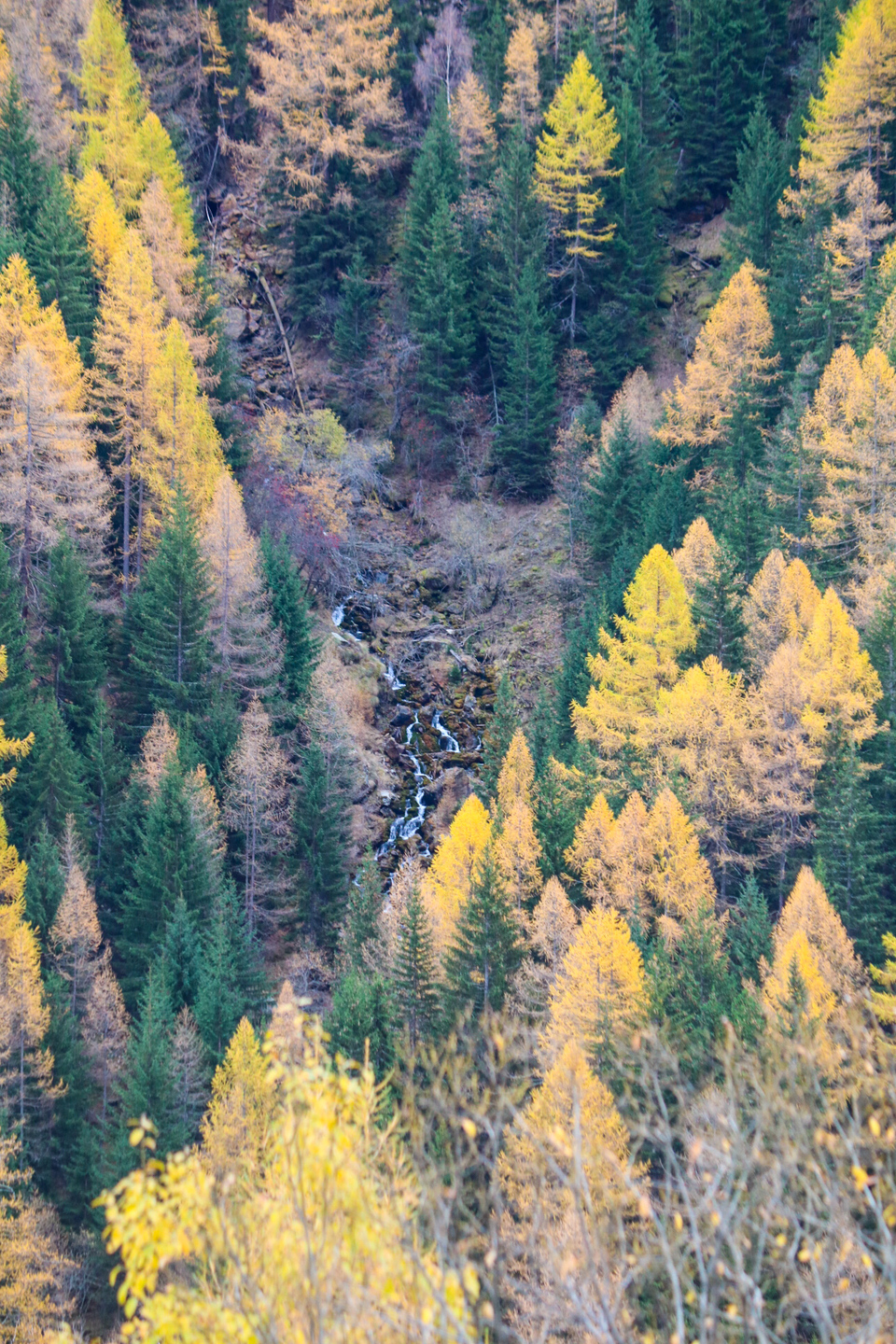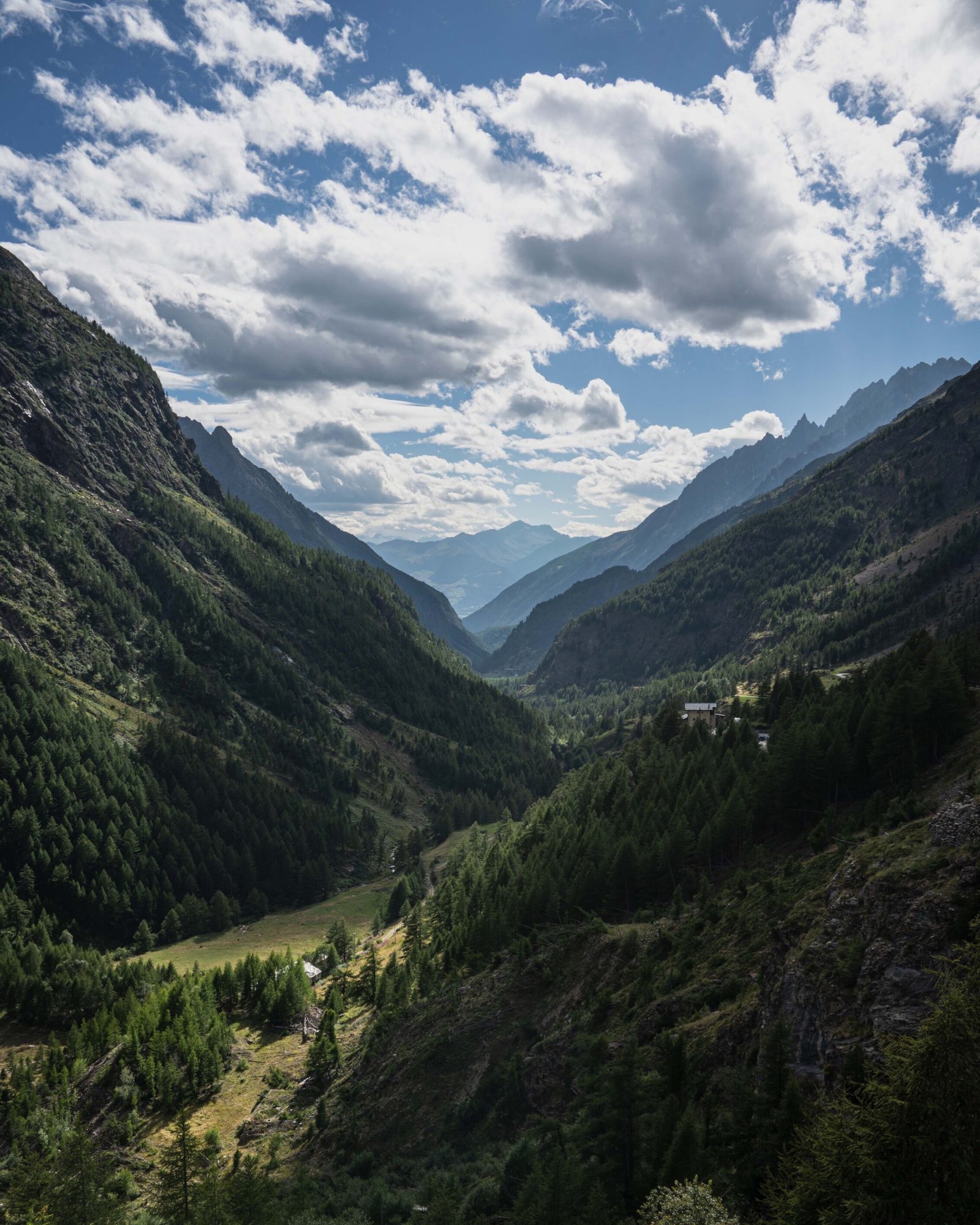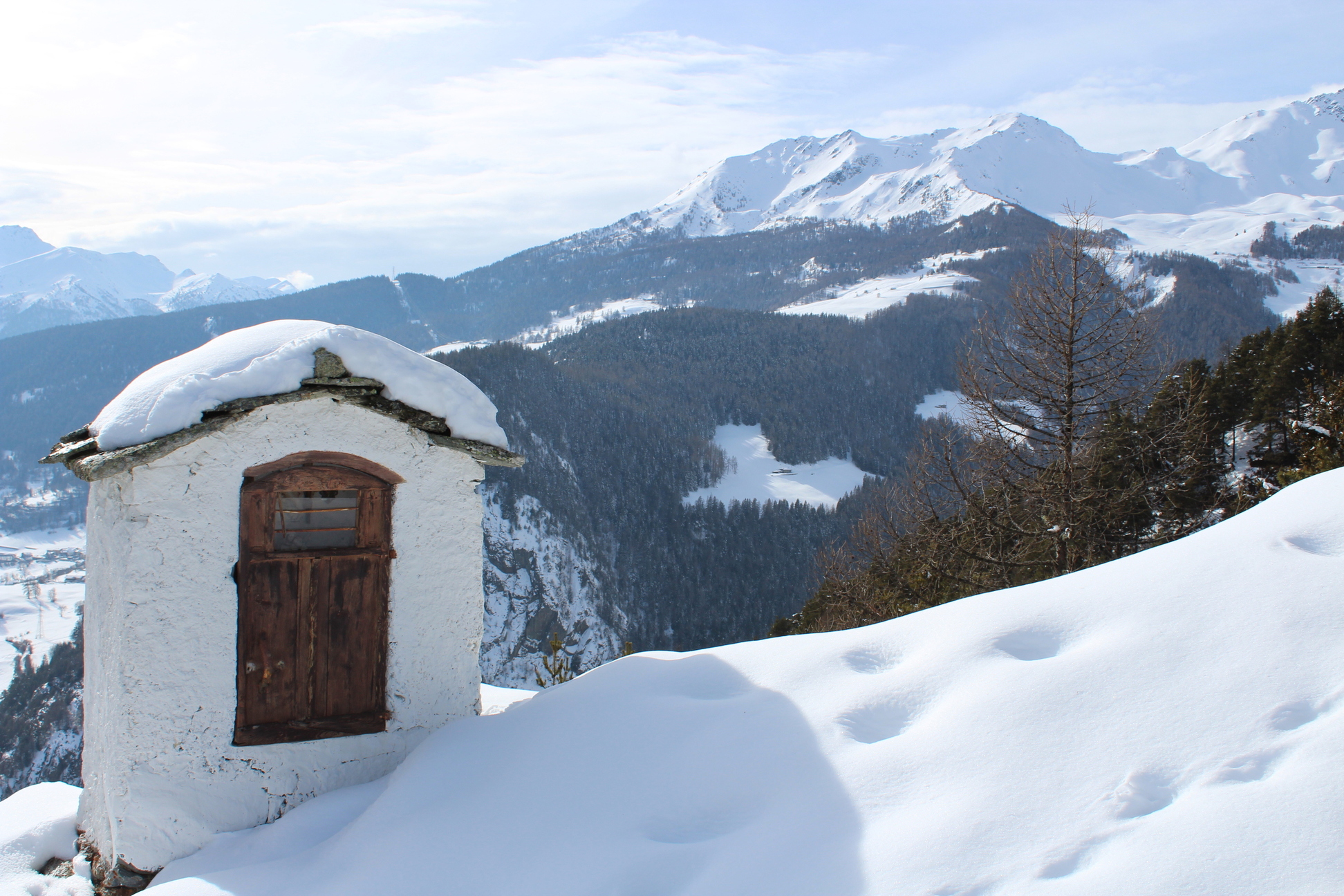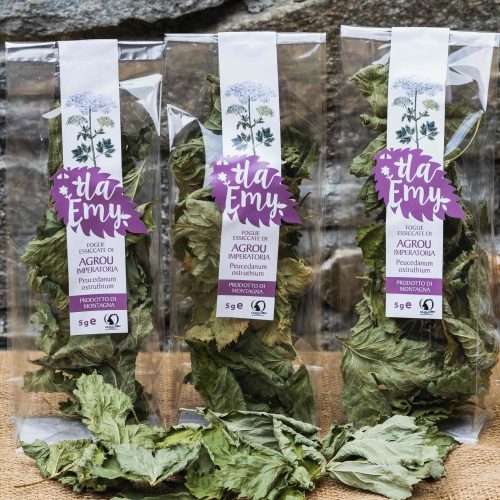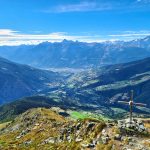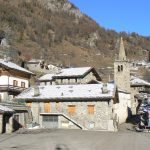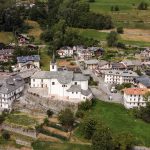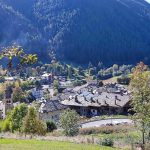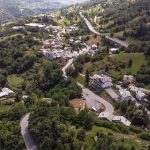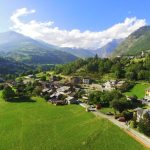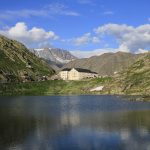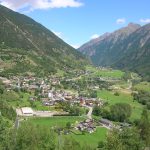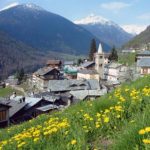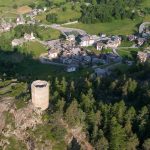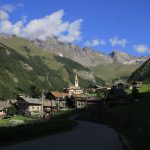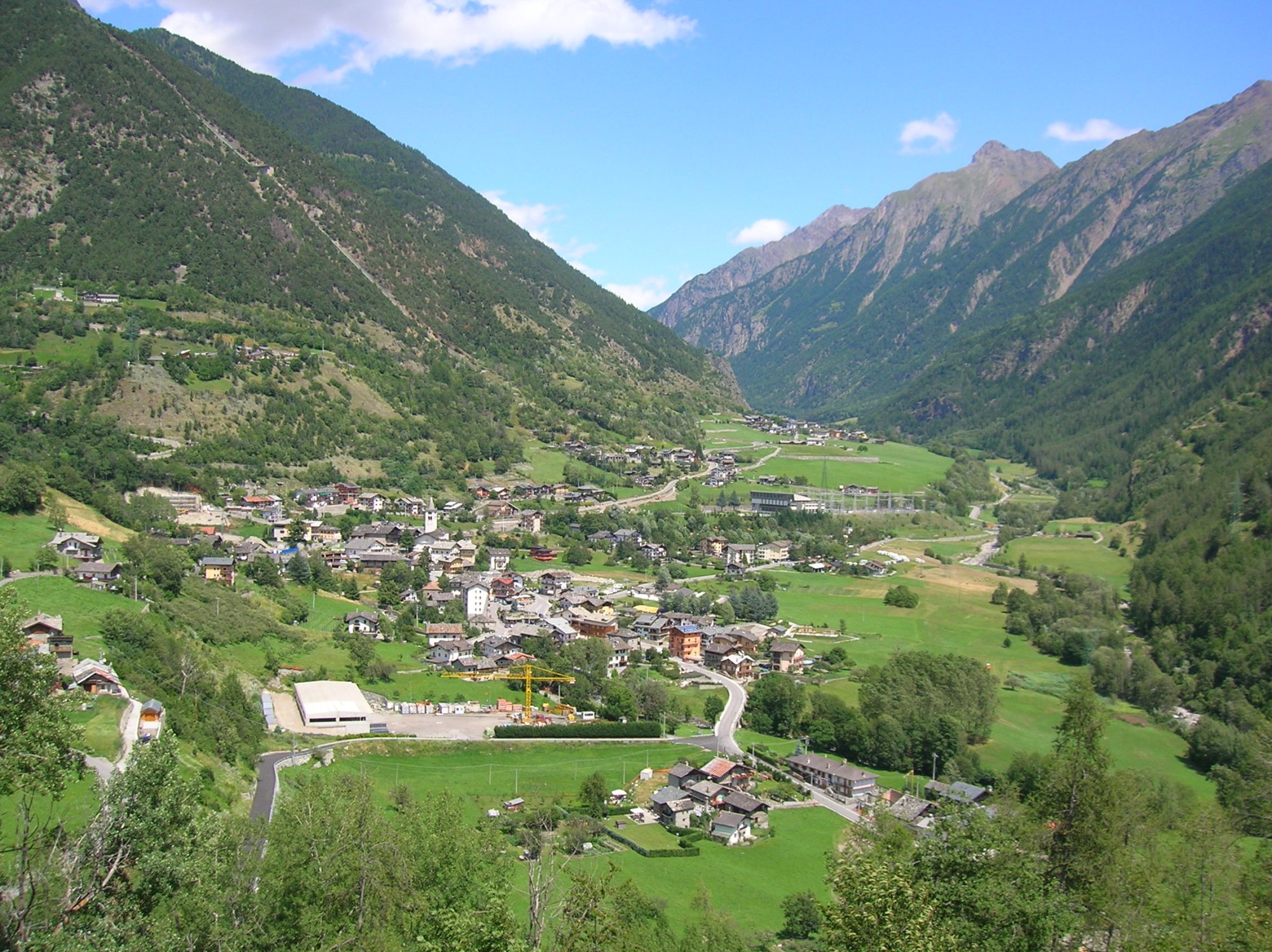
Unité des Communes Grand-Combin Valpelline
Between glaciers and local products
Valpelline is a long unspoiled valley of 635 inhabitants that stretches along the course of the Buthier stream nestled in a green basin among meadows and orchards.
Located at 960 meters above sea level and 12 km from Aosta, this place offers unique landscapes with mountain peaks and majestic glaciers.
Unlike other resorts in Valle d’Aosta, Valpelline has not been overwhelmed by whirlwind mass tourism, which is why the mountainous nature dominates silently without being marked by large human infrastructure.




Valpelline The History
Historically, Valpelline was a community based on agriculture, crafts and mining, known for its copper mine between 1700 and 1912.
Today, however, the town is famous for the production of the prized Fontina AOC, with its maturing warehouses carved into the rock, including one inside the old mine.
Its name has varied over the centuries.
This valley being located between the Pennine Alps was called Vallis Pennina until about 1550, when the name changed to Vallis Pellina and then finally to Valpelline.
Rich in fertile pastures and mineral deposits, Valpelline was soon occupied by the Salassi people in the 4th century, who engaged in gold mining and rich trade between the Alpine passes.
Later, Valpelline was also dominated by the Romans from 25 B.C. to 476 B.C. before being invaded by the Saracens who, at Oyace, built Tornalla, one of the oldest castles in the Aosta Valley.
Beginning in the 11th century, it was the House of Savoy that conditioned the valley by ending the constant struggles for supremacy, but during the Middle Ages it passed into the hands of the Lords of Quart as Valpelline became part of the fief of Oyace, which had been formed since 1287 by the Villair, Ollomont, Doues, Allein, Oyace and Bionaz.
In 1369 in the absence of male heirs, Valpelline along with all the other fiefs of the Lords of Quart returned to the Savoy.
A time of great change and fervor was after the Unification of Italy in 1861 after which the Italian language was imposed and the French language that had been the language of the Aosta Valley for centuries was abolished, a railroad was built, and the industrialization of the region began during which the mines of Bionaz, Ollomont, and Cogne were in full swing.
During the fascist period, after 1943, the first partisan movements were formed that contributed to the liberation of the municipality in 1944 and the autonomy of Valle d'Aosta, achieved on February 26, 1948 when the Special Statute of Valle d'Aosta was approved.

Whato do in Valpelline
What to see and do in Valpelline
For a cultural-historical tour, the municipality opens its doors to the Fontina Museum and Visitor Center, to discover the secrets of the famous PDO cheese, and to the La Tour house-fortress, built in the 10th century, rich in history and culture.
You cannot miss a visit to the village church, namely the Parish Church of St. Pantaleon, recognizable by its large sloping roof.
The lively and authentic nature of this valley offers splendid trails for trekkers and hikers, including a climb to Pointe Chaligne or Becca di Viou for breathtaking views of Mont Blanc and the Grand Combin.
If you are in Valpelline in late July, you cannot miss the Seupa à la Vapelenentse Festival!
This is a traditional festival dedicated to this delicious dish of peasant origin, typical of the local cuisine, prepared with stale white bread, broth, cabbage and plenty of Fontina cheese.
Are you curious about the delicious recipe?

Valpelline December 18, 2025

 -3°/-3°
-3°/-3°
 -3°/-3°
-3°/-3°
 0°/0°
0°/0°
 -3°/-3°
-3°/-3°
 -2°/-2°
-2°/-2°

